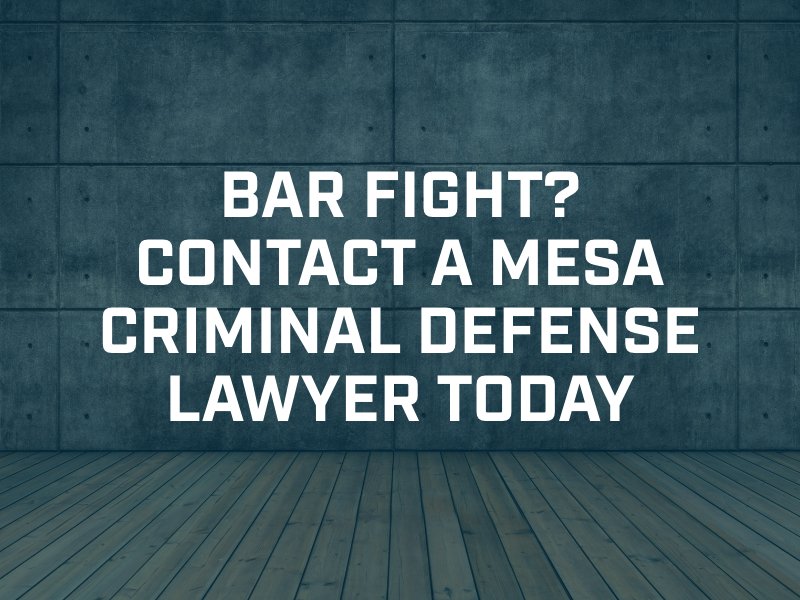
Posted on April 17, 2023 in Assault & Violent Crimes
A bar fight can quickly escalate into a serious brawl, where one or more people get injured and property gets damaged. In this case, the victim and/or establishment may press charges against the person who started the fight or caused the damage. One of these charges is assault. A bar fight may meet the state’s definition of assault under Arizona Revised Statute (A.R.S.) 13-1203 if an individual commits any of the following:
Aggravated assault (A.R.S. 13-1204) is committing any of these acts and causing serious physical injury to a victim, using a deadly weapon or instrument, causing temporary but substantial disfigurement or a bone fracture, or if the assailant is over 18 and the victim is 15 or younger. In addition, if the bar or establishment sustains property damage, the offender may face charges for criminal damage under A.R.S. 13-1602.
A bar fight could lead to misdemeanor or felony charges under one or more of Arizona’s criminal statutes. If you are charged with felony assault for a bar fight, you could be facing up to 10 years in prison and a $5,000 fine. If your fight involved a knife, gun or another type of weapon, you could be facing first-degree assault charges and penalties of up to 25 years in prison if convicted. Misdemeanor assault has a shorter jail sentence and smaller fines, but can still significantly impact your life. You may also be required to pay restitution to the victim for medical bills and/or the bar for any property damage sustained.
If you get arrested on suspicion of one or more crimes in the aftermath of a bar fight in Arizona, you may be held for a day or longer in jail. You will be booked at the local police station, meaning your fingerprints and mugshot will be taken. You will have the opportunity to make one phone call, which you should use to contact an attorney or tell a loved one to call a Mesa criminal defense lawyer for you. Shortly after you are booked, you will be required to appear at an arraignment hearing, where the charges against you will be read.

During every stage of the legal process – your arrest, questioning by the police and detainment – protect yourself by using your right to remain silent. Do not answer any questions about the incident until you have an attorney present. Be as polite and cooperative as you can without giving away any information. Simply state that you will not be answering any questions until your lawyer is present. Then, contact an attorney as soon as possible.
A defense attorney with experience handling assault charges can help you through the legal process. Your lawyer may be able to negotiate with the prosecution for a plea deal with reduced charges or penalties, for example, if you have a clean criminal record. If your criminal case goes to trial, your lawyer can represent you before a judge and jury. The defense used will be customized based on the evidence the prosecution has against you, your criminal history and various other factors to give your case the best odds of success.